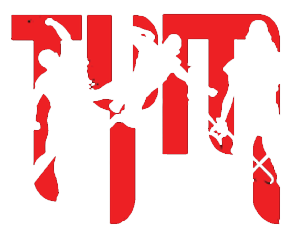FrothyOmen
P!
Hi everyone. I am a senior in college, and on the cusp of earning my Bachelor's degree in Nuclear Medicine Technology. I am currently finished with classes, and am working 40hrs/wk in a clinical setting. I am not paid at all for this, I am basically giving free labor for the payment of my own experience, to oversimplify things. Once I finish my clinical training hours in December, I will take final exams at college in January, and sit for boards either that month or the beginning of February, depending upon testing dates. Once I pass, I'm certified, I'll have my degree, and I'll be into the real world.
However, during my time in school, the job market has taken an absolute nosedive.
I can count on one hand the number of nuclear med jobs in Ohio, PA, Indiana, Illinois, and VA right now. All of these jobs are PRN (as-needed, no guarantee of hours). Reading forums online, all I see are people that have been working in the field 20+ years kicking and screaming about how terrible it is. Patient volumes are down, doctor perception of nuclear is down, we are currently caught in a shortage of our lung imaging agents... those with jobs in the field are lucky to have hours. those that don't have hours are lucky to get a few crumbs. And there are a LOT of nuclear techs that can't even get the crumbs.
Are other job markets like this? Is it really so difficult to find good work related to your degree right out of college? I'm going to have 8 months of full-time experience and potentially two separate certifications in nuclear medicine (NMTCB and ARRT), as well as a non-diagnostic CT certificate enabling me to run certain hybrid imaging systems ("the future of medical imaging").
If you are in/have been in hard times like this where there simply aren't jobs for your major, how have you gotten by? Did you have to go back to school, and learn how to do other things? Did you have to get additional degrees? Did you have to flip burgers on the weekends to try to help make ends meet? I'm certified in phlebotomy, so hopefully I can do that on the side and make enough to get by until I (hopefully) find a nuclear med job...
I guess I don't really know what I'm asking. I have a little under half a year to make a plan on how I can continue in life after graduation. Does anyone have advice on how to deal with low-demand job markets, and how to stand out within them? What can I do to be the best possible candidate and be as attractive as possible to potential employers?
CrimsonShadow PLAYING TO W1N tagging the both of you since you both would probably have unique opinions on this. Just looking for a little advice/guidance I guess.
However, during my time in school, the job market has taken an absolute nosedive.
I can count on one hand the number of nuclear med jobs in Ohio, PA, Indiana, Illinois, and VA right now. All of these jobs are PRN (as-needed, no guarantee of hours). Reading forums online, all I see are people that have been working in the field 20+ years kicking and screaming about how terrible it is. Patient volumes are down, doctor perception of nuclear is down, we are currently caught in a shortage of our lung imaging agents... those with jobs in the field are lucky to have hours. those that don't have hours are lucky to get a few crumbs. And there are a LOT of nuclear techs that can't even get the crumbs.
Are other job markets like this? Is it really so difficult to find good work related to your degree right out of college? I'm going to have 8 months of full-time experience and potentially two separate certifications in nuclear medicine (NMTCB and ARRT), as well as a non-diagnostic CT certificate enabling me to run certain hybrid imaging systems ("the future of medical imaging").
If you are in/have been in hard times like this where there simply aren't jobs for your major, how have you gotten by? Did you have to go back to school, and learn how to do other things? Did you have to get additional degrees? Did you have to flip burgers on the weekends to try to help make ends meet? I'm certified in phlebotomy, so hopefully I can do that on the side and make enough to get by until I (hopefully) find a nuclear med job...
I guess I don't really know what I'm asking. I have a little under half a year to make a plan on how I can continue in life after graduation. Does anyone have advice on how to deal with low-demand job markets, and how to stand out within them? What can I do to be the best possible candidate and be as attractive as possible to potential employers?
CrimsonShadow PLAYING TO W1N tagging the both of you since you both would probably have unique opinions on this. Just looking for a little advice/guidance I guess.







